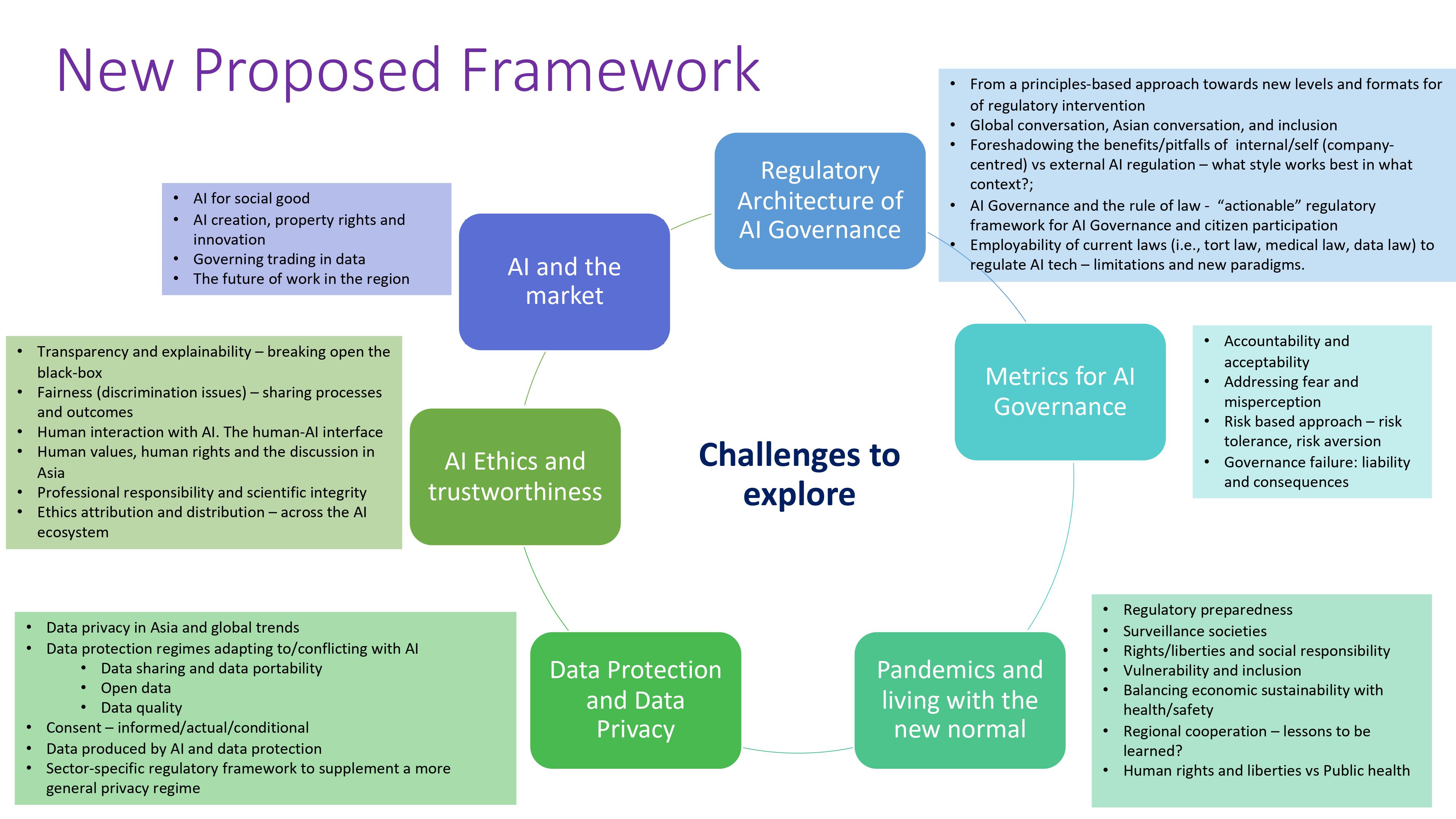
New Framework and style of the Dialogues:
- Consensus on the new framework
- We have reached a consensus on the new proposed framework that will guide the Dialogue methodology (see attached)
- Participants will select from the available themes and work on their topic(s) of interest.
- To clarify, participants do not have to restrict themselves to any one particular theme but can also collaborate/research into other areas with our fellow research partners.
- The new framework has been designed in a way that that not only enables but encourages participants to work on areas that are both broad and specific in nature. Put differently, participants remain free to work on narrow topics of their interest so long as it fits into one of the general themes.
- Some interesting suggestions on our “dialogue methodology” and how to raise our reputation were put forward in our conversations with the dialogue participants. We highly encouragedparticipants to pursue these avenues amongst themselves, with our institution, and other interested stakeholders. CAIDG will perform any necessary coordination/administrative work in this respect including:
- Organizing work-in-progress meetings with fellow dialogue participants to discuss research papers
- Connecting with others in your jurisdiction to integrate them into our Asian dialogue on AI governance
- Setting up one to one meetings with individual participants whose research interest(s) are aligned with yours
- Using the new dialogue microsite (that we are looking to make live soon) to disseminate our work or to publish work in progress meetings for comments
- Outputs for 2020/2021
- We will be flexible with the deliverables/outputs – bearing in mind also the preference for broader dissemination to a wider audience. These are some of the outputs proposed in the meeting:
- Work in progress workshops
- Paper lectures
- Case studies
- Expert talks
- Collaborations for research
- We can also seek to combine a variety of different outputs as a collective whole.
- Special issue
- E-book
Next Steps:
- Participants will indicate to SMU the preferred theme(s) and output(s). After receiving the responses, SMU will get back to everyone with a proposed timeline for 2020 and 2021 based on everyone’s ideas. Examples of outputs that will be included in this timeline, according to what participants mentioned during the meeting:
- Research pieces: Some of the participants applied to a bursary, so they have decided already what they work on within the Dialogues framework. This will be presented in a series of paper lectures that together will cover some of the topics included in the new framework.
- Work in progress workshops: some participants will present the developments on their research topic in a workshop where all Dialogue members and experts in the field will provide feedback
- Case studies: some participants are interested in presenting some case studies that can contribute to the understanding of AI Governance challenges in practice.
- Microsite: This microsite can be used to disseminate the Dialogue’s work or publish work in progress, meetings for comments, etc.
Last updated on 13 Oct 2020 .